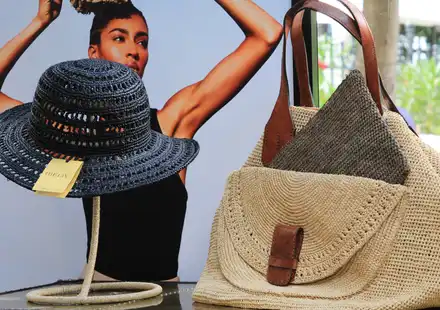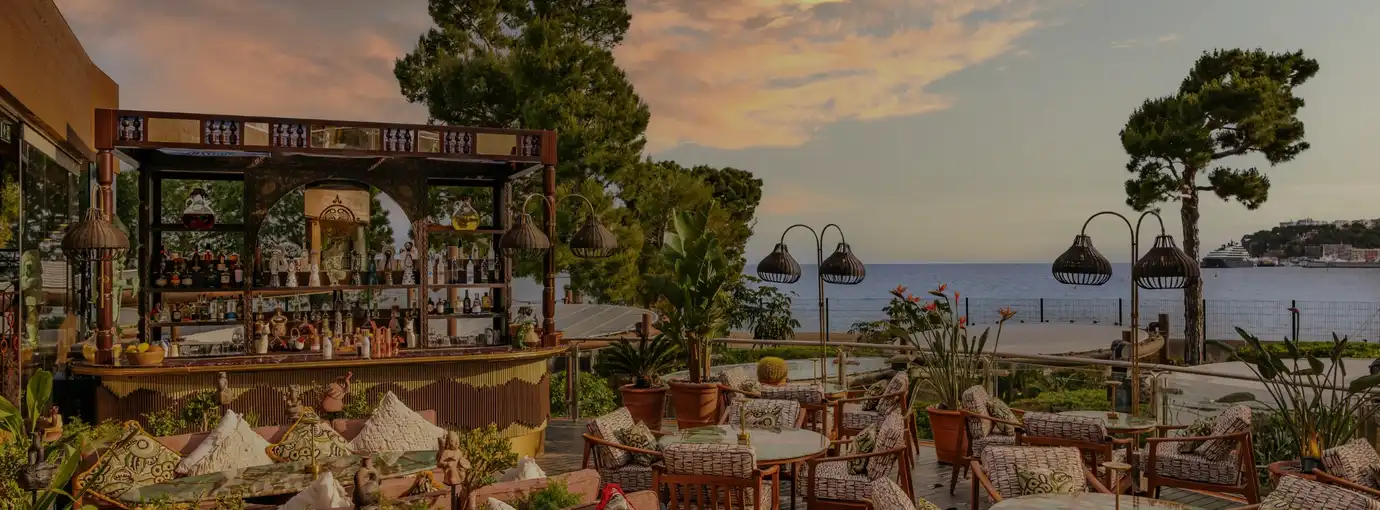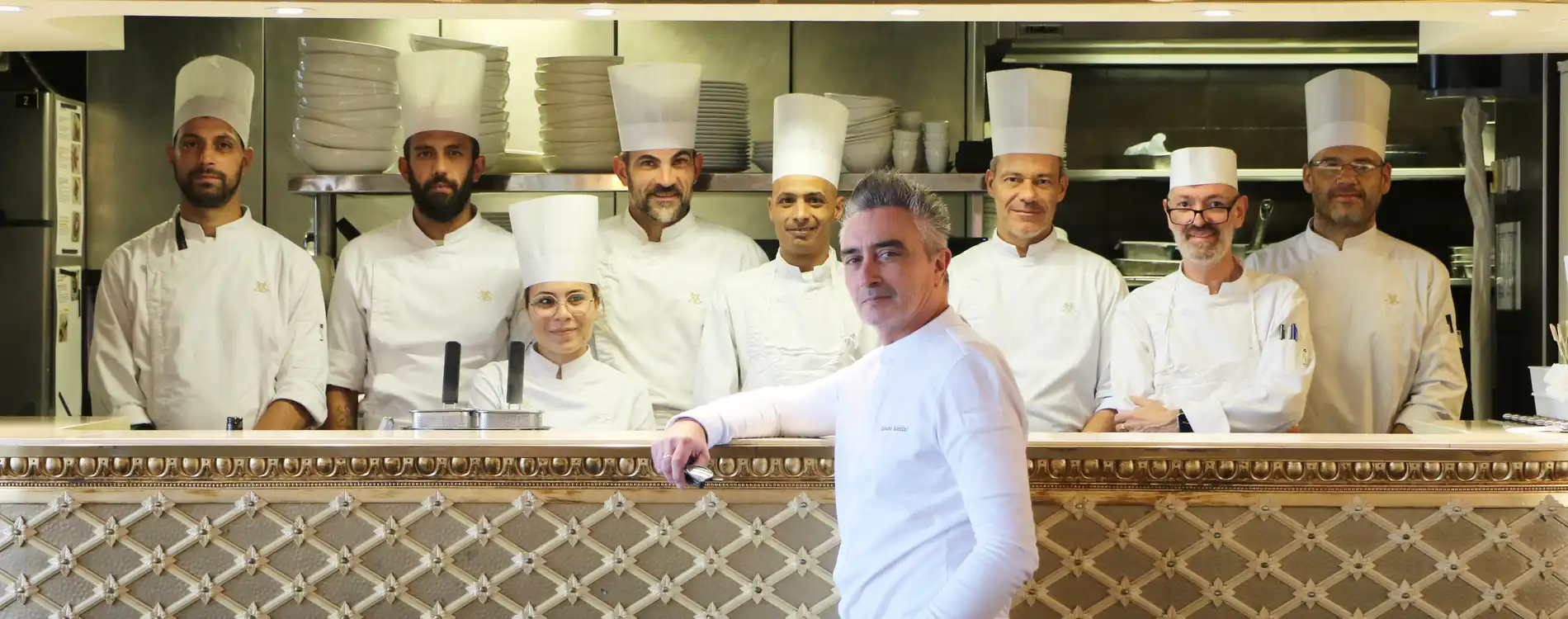Updated on October 28, 2024
This local boy was trained by Chef Alain Ducasse and worked in the kitchens of the Casino de Monte-Carlo, the Sporting Monte-Carlo and the Buddha-Bar Monte-Carlo before going abroad to discover other culinary cultures and savoir-faire. But when you have ties to Monaco, you always end up coming back. For more than 20 years, Richard Rubbini has put all his talent and all his love of cooking into serving the customers of Monte-Carlo Société des Bains de Mer. Today, the Chef is taking over the reins of the kitchens at the Casino de Monte-Carlo, at the restaurants Le Salon Rose and Le Train Bleu. The opportunity to talk to him about this new adventure, his philosophy in the kitchen and his brilliant career.
What does this new adventure mean for you?
Richard Rubbini: It’s a great honour. A pleasure! The culmination of a career that began in Monaco many years ago. The Casino de Monte-Carlo is an extraordinary place and building, with its paintings, sculptures and glass ceilings. A magical place. Everything has to be perfect. We have to make our guests dream. Whether they are here to play games in the casino or not, as obviously the restaurants are not open only to players.
What was your relationship with cooking when you were a child?
R.R: One image has stayed in my mind. My grandmother in front of the stove making gnocchi, ravioli, beef casserole or rabbit with olives on a Sunday. She made regional food, with simple products. To answer your question more precisely: I’ve known since I was a child that this was what I wanted to do. Therefore, I’ve seen it through to the very end…
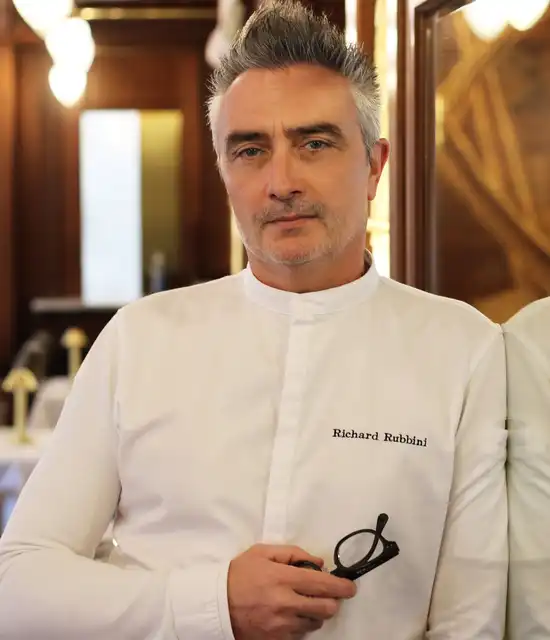
To the end of your dream?
R.R: Yes. After hotel management school, I was lucky enough to train in the kitchen with the Chef Alain Ducasse when he had just joined the Group. That was a significant moment for me. This was the type of cooking I wanted to do. Whether it was the quality of the products, the tableware, the staff, the chef… I wanted to work with this cuisine par excellence. I was drawn to this quality. It has enabled me to travel, to go out and experience other cultures, other ways of thinking and cooking.
Travels to broaden your horizons?
R.R: Yes. First I went to Switzerland to learn the basics of traditional, classic cuisine. A bit like when you do music: first you have to do the theory so that then you can play! Then, it was London, at the Hyde Park Hotel with Marco Pierre White and his three Michelin stars. I then spent three years at the St. Regis in New York, in the restaurant Lespinasse, where I discovered real fusion cuisine: combinations of products that I hadn’t thought possible. Before these trips, there was just one type of cuisine that existed: French and Provençal. The height of gastronomy for me. But abroad, I realised that many types of cuisine existed, and you can feel that in the food I offer today.
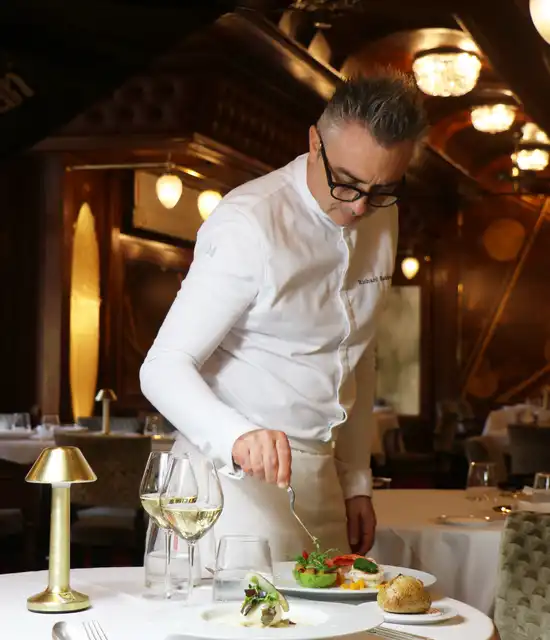
In 1997, your return to Monaco… Was it inevitable?
R.R: I was a local boy, I was born in Monaco, I studied here, I lived here from my birth until I left to go abroad. What made me come back was my attachment to the region, the blue of the sea, friends, people. My life is here. When I returned, I joined the Casino de Monte-Carlo, at the former private restaurant, then went to the Sporting, where I was able to perfect my skills. Whether I am in a fine dining restaurant or a restaurant seating 1,000 people, I adapt. I am responsible for the evolution of the identity of the Casino restaurants, Le Salon Rose and Le Train Bleu, and for suggesting new ideas for the Buddha-Bar Monte-Carlo.
How is Le Salon Rose set to evolve?
R.R: We are going to offer a new culinary identity in this gourmet cocoon at the heart of the Casino. We are going to modernise the menu, make it more fun, introduce more world cuisine. Hummus with tasty pitta bread, a tataki accompanied by yuzu sauce with truffle, fresh ginger, couscous… eaten in the cosy, intimate surroundings of this former smoking room with its belle époque décor, with its niches and powder pink alcoves and its terrace overlooking the Mediterranean.
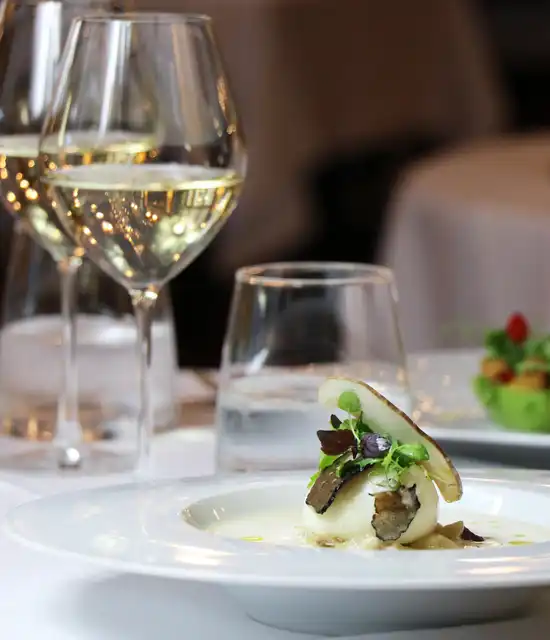
And Le Train Bleu?
R.R: In this unique venue, a dining car with an art deco atmosphere, we offer Italian and Provençal traditional cuisine, but even more gourmet and refined. We are going to work on the product, on simplicity, and bring a contemporary touch. An invitation to travel set against the backdrop of the Place du Casino.
Can you tell us more about the made-to-measure aspect of this restaurant?
R.R: The aim at Le Train Bleu is to respond to the culinary desires of its customers, in terms of the dishes but also the food and wine pairings. This kitchen stays open as long as the customers are there. You have a menu which serves as a guide, but you can make any request you can imagine as long as we have the products. The recipe, how it is cooked, sauce, condiments: anything is possible. Each service is a challenge. As Chef, it’s a real challenge and very rewarding.
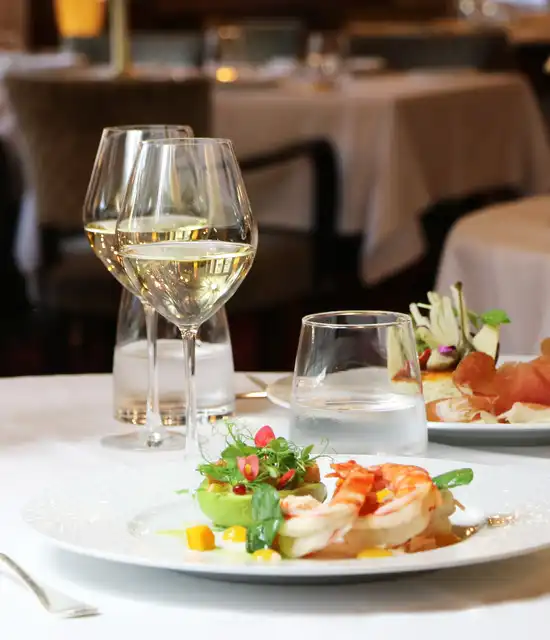
How would you describe your culinary universe?
R.R: Simplicity and lots of taste. In our region, we have some of the best products in the world, from the sea and the land. I love this region’s cuisine. But I also love to work with spices and mix them with Riviera cuisine.
Your favourite products?
R.R: Artichokes and courgette flowers. Products that we find in our markets and that we can enhance, whether we choose to boil, sauté, poach or steam them. What a delight an artichoke is, steamed, with two crushed anchovies, a drizzle of olive oil and some basil.
And in terms of herbs and spices?
R.R: Basil, oregano, savory and wild thyme are the herbs that I use most often. In terms of spices, I like Espelette pepper, saffron and curry. These are the basics in my cooking today.
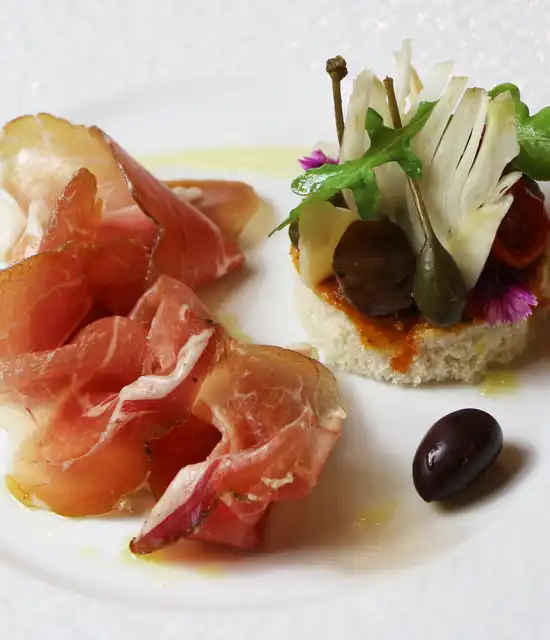
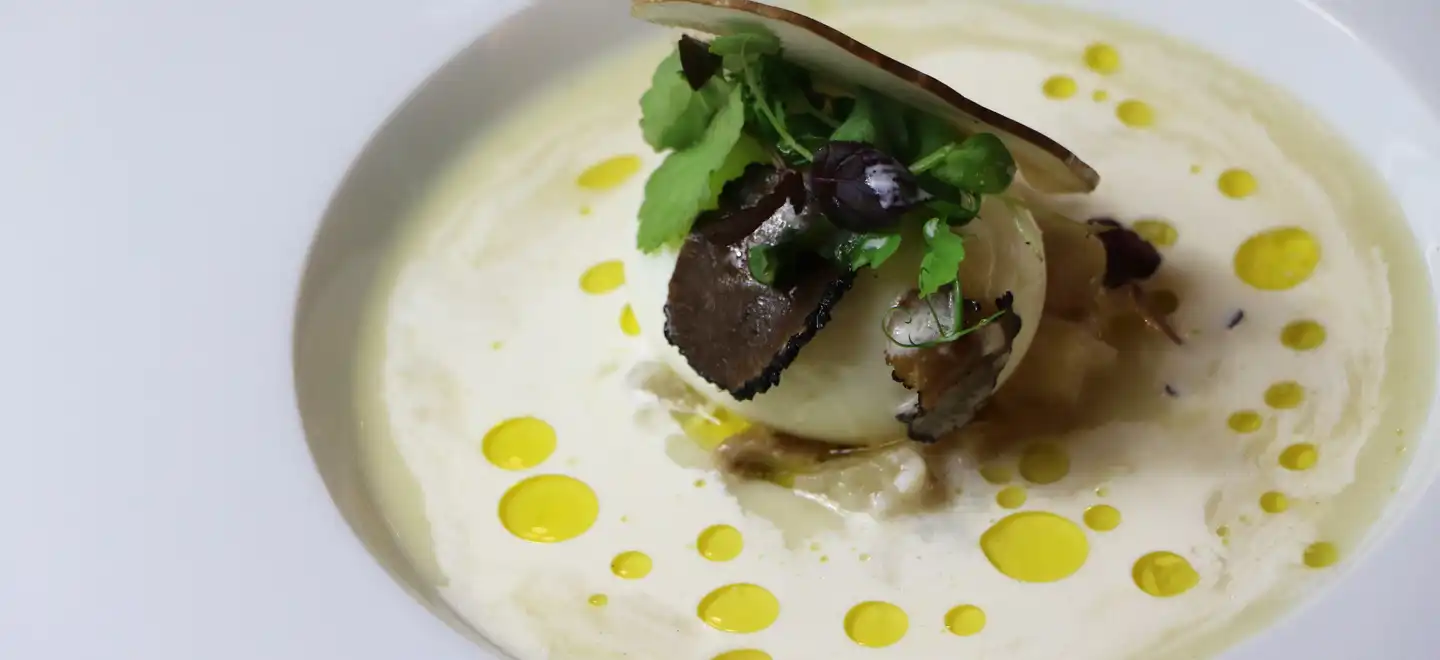
What is the most important sense in cooking?
R.R: Taste, taste, taste! The product must not be denatured, it must be used as it is, as simply as possible.
What kind of relationship do you have with your teams?
R.R: I am someone who is very calm and a partner of the people who work with me. That really helps with training. When I started out more than thirty years ago, there was lots of shouting in kitchens. For me, it is above all about dialogue and discussion. What makes a chef is their union with their team.
A compliment that has particularly stayed with you?
R.R: I like to share my savoir-faire and my cooking. Simple feedback like “Chef, it was very good…” I’ve led many events, like the last gala of the Monaco Red Cross on the Terrasses du Soleil this year. What a challenge to build a pop-up kitchen on the Casino terrace, to cook for 800 people. It’s very stressful, but to receive an email with compliments from His Highness or the management is a real pleasure and really motivates the teams!
You might also like…
Repossi: high jewellery and avant-garde design. Meeting with Anne de Vergeron
Meet Anne de Vergeron, CEO of Repossi, for a creative and sparkling tour through the history and behind the scenes of this legendary jewellery house.
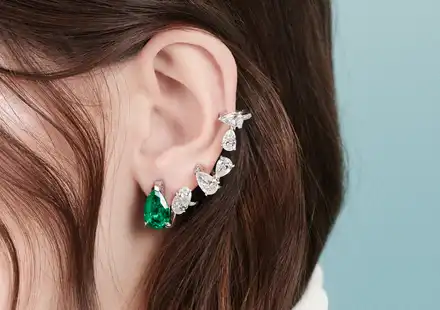
Top Marques car show: from classic cars to supercars, traditional know-how to high technology
As the Top Marques 2023 car show approaches, we hear about the careers of former F1 driver Thierry Boutsen and drone designer Erwan Grimaud, and get their perspectives on the show.
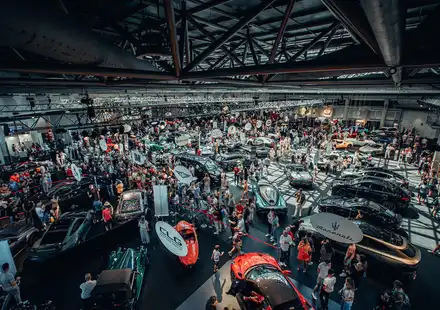
Interview with Liva Ramanandraibe, founder of IBELIV
IBELIV, an ethical brand created in Madagascar, is bringing its refined world to the Jardin Saint-James in collaboration with Monte-Carlo Société des Bains de Mer. Here, we meet the inspiring entrepreneur behind it all: Liva Ramanandraibe.
